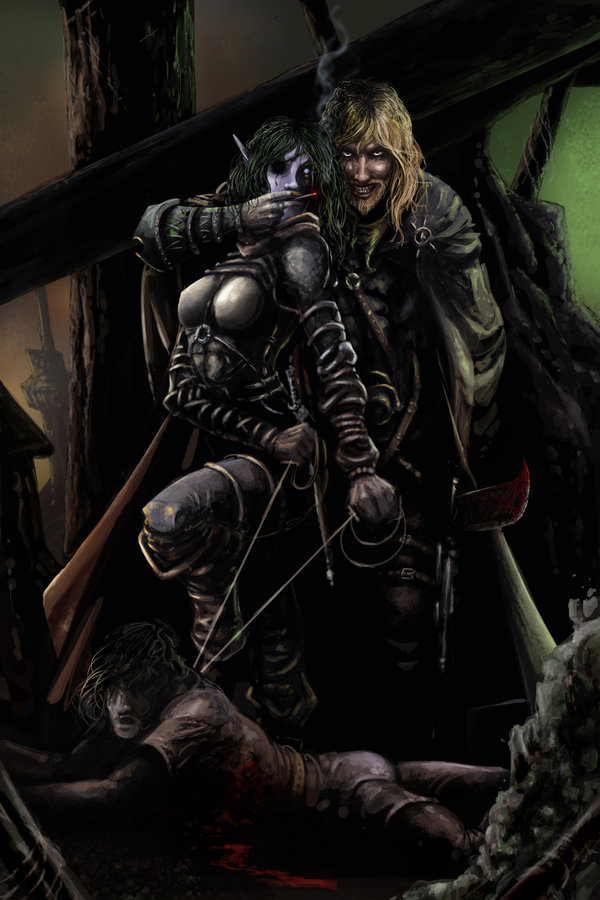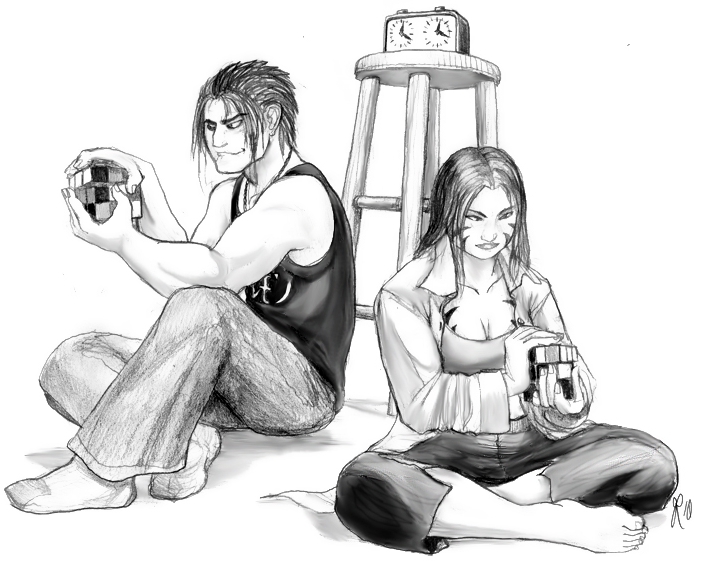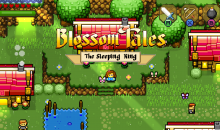Roleplaying Without the Tabletop
We here at Dorkadia are very fond of our tabletop RPGs. But what about when you can’t have the table to play around? As awesome as real life RPGs are, sometimes they just aren’t feasible. So there are times when we nerds turn to the greatest tool mankind has ever invented next to those Japanese ear cleaner things – the internet.
Online games can be extremely rewarding and very unique when you get familiar with running and playing in them. So be it via Skype or IRC, an MMO plotline or a forum-based game, here’s some tips for what a GM can do when the table has been eliminated for the tabletop.
Sometimes Inclusion Means Hearing No

I guess I played a one-eyed penguin once?
A lot of online games, especially more freeform stuff that doesn’t utilize a system, involves the GM taking more of an ‘Operator’ or ‘Storyteller’ position. These story-runners will often participate in the story with a PC of their own. It’s usually a VERY different style of role than a tabletop GM.
Like any other roleplaying game, an online plot has to give something to everyone who participates in it; character motivation, drama, action-adventure, intrigue – no one will enjoy a plot in which their role could be filled by a cardboard cut-out. When you tell your story it should be about the story you’re wanting to tell and the parts everyone who is involved get to play.
If you’re, say, running a plot on an RP server of an MMO, you’ll have a variety of people that you want to bring into your story. Casual RP is handled differently for everybody – people RP for different reasons and during different points of their days/lives/moods. Some people might not be interested in what your plot offers them or might not want to put their character in the place your plot would affect them. Suddenly barging into some one’s RP face with an intricate, complex plot of well-crafted murder, mayhem and adventure might only serve to drive that person away if they never consented to being involved in the first place. Don’t be offended if people chose NOT to be involved with your plot.
Most RPers in any setting, will greatly appreciate just being asked to participate. Remember, many of us are textbook Socially Awkward Penguins.
Stick a Fork In Me, I’m Done
One of the most useful tools to a writer, storyteller or GM is the plot outline. Having a road map to your major plot events is incredibly handy. RPers are notorious for going off on tangents. Online RP can make this even more challenging, as online gaming lets players be a lot more expansive than they might be at a table; it’s much easier to react in text when you have a some time to consider your character’s reactions rather than a bit of spot LARPing at the table.

This character had pretty hair and a terrible fashion sense.
To help your game from going off the rails, an outline will massively help you make sure you know where you’re going. RP plots tend to fizzle if you don’t have more than a vague idea of where you want to go with it. An outline will give you the answer to give to your players when they need some storytelling prompting for their options.
Having an end-goal to aim for is also very important when you’re running a plot. Open ended plots are too aimless; without a goal you’ll never know when you can say THE END and leave the way clear for the next story arc to come about. Your outline doesn’t have to be an exact script – organic roleplay is fantastic and can change everything in the span of a single intense scene. But be ready to change your outline to reflect such things – you need to know the endgame.
Remember, though, not all plots have concrete conclusions. Life isn’t always tidy and neatly wrapped up and there’s no reason for RP to be the same. There’s a difference between an ending and a conclusion. Conclusions tend to wrap things up, endings just finish it. You do want your individual plots to end; you don’t want it to become a staggering zombie of a story, but you don’t have to have a conclusion that puts a pretty sparkly My Little Pony bow on every plot thread. Know when to say die and try to mark the end of your plot in a way that demonstrates clearly to players that there are no more shoes left to drop.
Let’s Do the Time Warp Again
You’re so excited. Tonight’s the night. Your plot has finally come to a climax; all your friends are ready to have an epic battle with the cyborg-dragon-lord-of-time. You’ve got it all planned out; you’re going to do it on IRC, you’ve commissioned pictures of your bad guys, even have boss music lined up on YouTube. It’s going to be epic.
Three hours before you start, the guy playing the main healer has to bail. His wife’s sick and he has to take care of her. Well, okay. You guess you can reschedule for tomorrow.
Tomorrow’s no good for the player of the kidnapped character. She’s got real life obligations, it’s her D&D night.

This is why I always preferred roleplay in WoW to any part of WoW’s canon plot. We were too badass for the game, too badass for this game.
Um…okay, guys. How about next Monday? A week after that? Fuck no, says every DPS player ever. That’s our drinking night.
You’re never going to get all these people together for your meticulously planned epic battle!
…actually, no. There’s a very good chance you AREN’T going to get every single person you want involved in on the big events of your plot. The internet is a big place; people are coming from every venue of life and a huge assortment of time zones and locales. There’s the upside-down time Aussies, the insomniac college kids, the grown-ups with 2.5 kids and 9 to 5 jobs. As hard as you try, sometimes you’re just going to have to eat the idea that not everyone is going to be there. The sad fact is that as an online GM, the best experience you can get is becoming used to adjusting encounters on a wing and a prayer. Once you are able to make yourself more flexible, you’ll be way more able to deal with last minute scheduling snafus.
Online RPing, while not as systematic as a real life RP game, is a great hobby. It’s a fantastic way to learn character development, world building, and really let your creativity fly. So make sure to have fun and always remember Wheaton’s Law:
Don’t be a dick.






